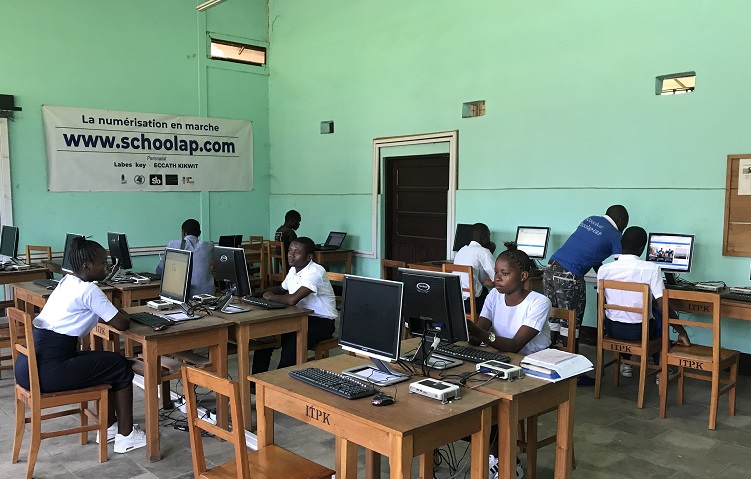Ed-tech startup Schoolap is hoping to secure 20 per cent of schools in the Democratic Republic of Congo (DRC) as customers by June 2020 after seeing strong uptake of its platform.
Recently named winner of the DRC leg of the global Seedstars World competition, Schoolap is a product of local startup Labes Key. The startup, launched in September 2016, has developed a learning and school management platform that has features for pupils, teachers, parents and school administrators.
Its primary feature is lessons search engine “Nos Leçons”, which co-founder Kanik Pascal told Disrupt Africa is the most popular aspect of Schoolap because of its value proposition.
“Here, Schoolap is responding to a biggest need of the educational network in DRC, which is the lack of a pedagogical manual around the country,” he said.
“Instead of selling pedagogical manuals or books to poor teachers and pupils, Labes Key has created a pedagogical unit who have manuals and books, can prepare lessons, and put them onto the platform to allow pupils, teachers and schools to access good content to improve the quality of education for all and avoid inequality.
Schoolap also includes an administration platform for school managers, and a feature that allows parents to keep up to date with what is occurring at their child’s school. It is also in the process of developing Payschool, which will allow parents to pay school fees using mobile money.
The idea for Schoolap was conceived in 2015 when Pascal, then working in business analysis at Vodacom, was asked to look at data surrounding schools in the DRC.
“I went to meet the general inspector of national education, and the inspector led me to the data warehouse’s room of schools reports and archives, but it was just not exploitable,” he said. “I went to search for data from the Catholic school’s national network, but the problem was the same.”
Frustrated, Pascal began looking at ways of offering school decision-makers dashboards of relevant information, and Schoolap was born. It soon grew.
“When we started, school managers asked us to find also the way of resolving their issues through our digital solution. They wanted to have access to the pedagogical manuals, because they didn’t have enough books in their schools,” said Pascal.
“So we looked for a solution and we found it by developing something like a “Google of national education”, where teachers who have access to a good library and pedagogical manuals can share their lecture content with those who have no access. Then we had started integrating others futures to involve parents, like SMS notifications, and now Payschool.”
The value of all these features is evident by the uptake of Schoolap. It is already being used in over 1,500 schools, whose 28,000 educators and 535,000 pupils represent four per cent of the available market in DRC. Pascal said it is targeting 7,500 schools by June 2020.
“Our business model depends on the feature. For now, lessons access is free, to help us build our brand and reputation, and to push acquisition,” Pascal said. “The data warehouse is charged per record. Payschool will charge a commission on the school fees transaction.”
Schoolap is currently bringing in around US$$4,000 per month, and is expecting to be making US$300,000 monthly by June 2019.


